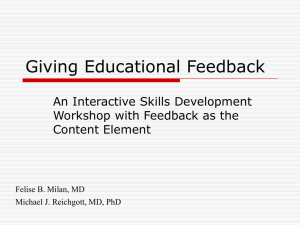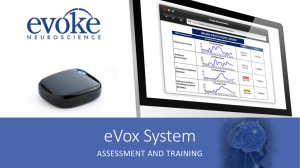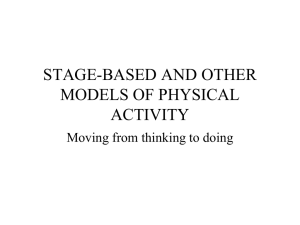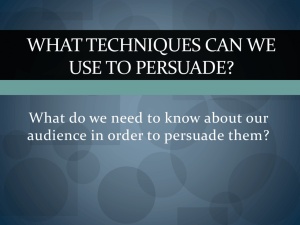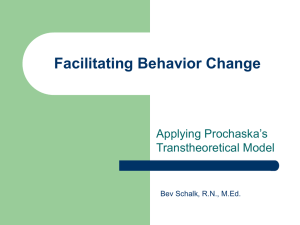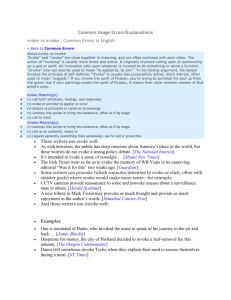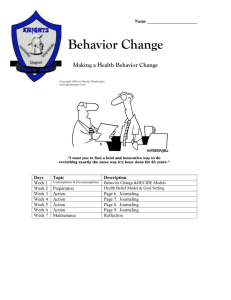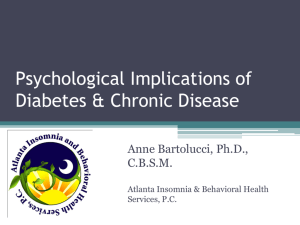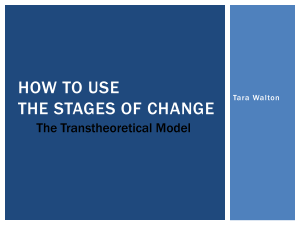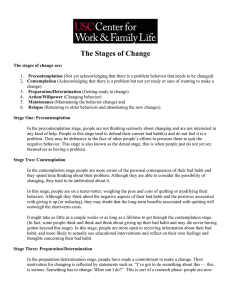Motivational interviewing is non-judgmental, non
advertisement
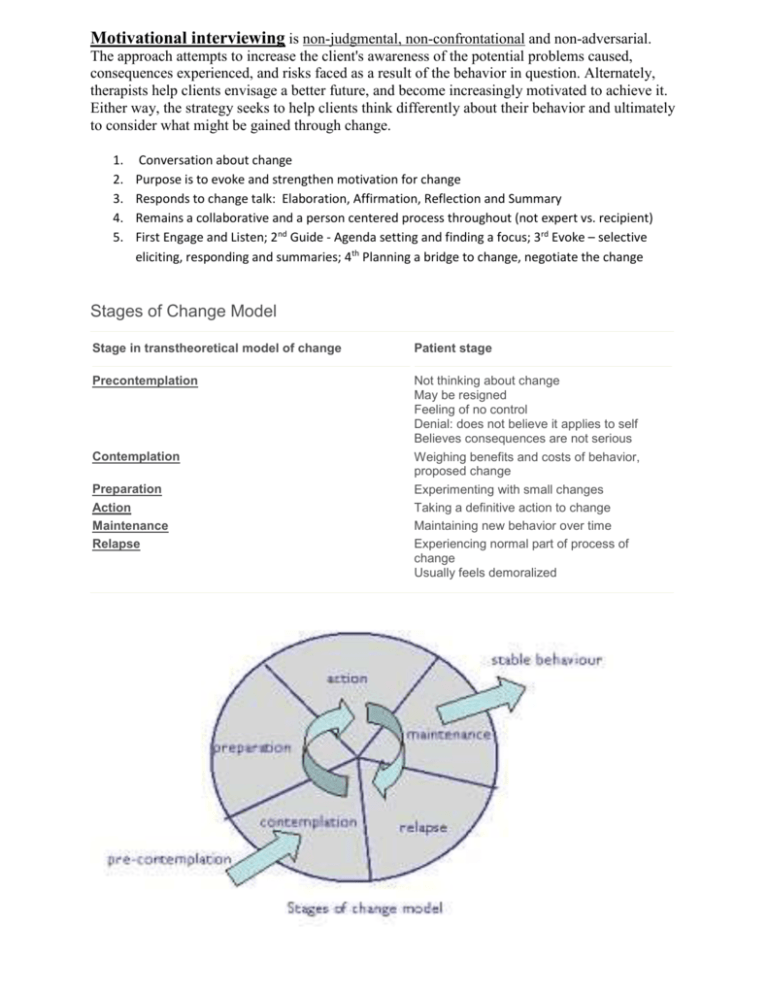
Motivational interviewing is non-judgmental, non-confrontational and non-adversarial. The approach attempts to increase the client's awareness of the potential problems caused, consequences experienced, and risks faced as a result of the behavior in question. Alternately, therapists help clients envisage a better future, and become increasingly motivated to achieve it. Either way, the strategy seeks to help clients think differently about their behavior and ultimately to consider what might be gained through change. 1. 2. 3. 4. 5. Conversation about change Purpose is to evoke and strengthen motivation for change Responds to change talk: Elaboration, Affirmation, Reflection and Summary Remains a collaborative and a person centered process throughout (not expert vs. recipient) First Engage and Listen; 2nd Guide - Agenda setting and finding a focus; 3rd Evoke – selective eliciting, responding and summaries; 4th Planning a bridge to change, negotiate the change Stages of Change Model Stage in transtheoretical model of change Patient stage Precontemplation Not thinking about change May be resigned Feeling of no control Denial: does not believe it applies to self Believes consequences are not serious Weighing benefits and costs of behavior, proposed change Experimenting with small changes Taking a definitive action to change Maintaining new behavior over time Experiencing normal part of process of change Usually feels demoralized Contemplation Preparation Action Maintenance Relapse

